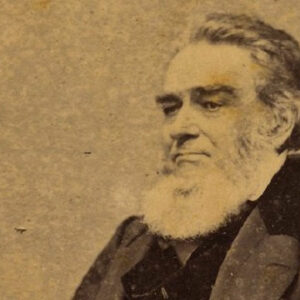Edward Bates was the first Attorney General of Missouri after it became a state. He was a U.S. lawyer and politician who played a key role during Abraham Lincoln’s presidency. Bates, with his grave and solemn demeanor, exuded dedication to his job and was forthright in expressing his views and opinions. He was a socially conscious individual who opposed the practice of slavery, which was widespread at the time. His family, like most white families of the time, had black slaves, whom he emancipated since he believed it was an inhumane practice to retain slaves. He obtained a decent education as a child and went on to study law as an adult. He was elected to the House of Representatives because he was ambitious and had a strong interest in politics. He was even nominated to be the Republican Party’s presidential candidate at one point, however he quickly recognized he couldn’t possible win. Undaunted, he went on to endorse Abraham Lincoln, who was elected President in the end. Under Lincoln, Bates was appointed Attorney General. The lawyer was a courageous individual who would freely express his disagreement with the president on any matter. He was a passionate family man with multiple children in addition to being a successful lawyer.
Childhood and Adolescence
In Goochland County, Virginia, he was the tenth child of Thomas and Caroline Bates. His parents were both Quakers. His father died while he was a small child, but he was fortunate to have several older siblings who looked after him. In 1806 he was sent to Charlotte Academy in St. Mary’s County.
During the War of 1812, he served in the army, despite his mother’s opposition to her son taking up arms. So, on the advice of his attorney brother, he opted to study law. In the winter of 1816-17, he moved to St. Louis and studied law with Rufus Easton, the Judge of the Louisiana Territory, and was admitted to the bar.
Career of Edward Bates
Following his admission to the bar, Bates joined Easton as a partner. The James Ferry, which operated from St. Charles to Alton, was founded by the partners in 1817. In 1820, he was elected as a member of Missouri’s constitutional convention, and he began practicing law in private. In the same year, he was appointed Attorney General of Missouri.
In 1822, he was elected to the Missouri House of Representatives and served there until 1824. His political ambitions were growing by the day, and when he was elected to the United States House of Representatives for a single term in 1827, he was overjoyed.
During the 1830s, his political career took off. He was elected to the State Senate in 1831 and served there until 1835, when he moved to the Missouri House of Representatives. He rose to prominence in the Whig Party during the 1840s. Henry Clay’s political ideology was fairly similar to his own.
Bates was a slaveowner at the time, but his views were swayed by the case of Polly Berry, a freed slave who solicited his help to rescue her daughter, who was still being held illegally by her so-called masters. He was considered for vice-presidential selection at the Whig National Convention in 1852, but lost to William Graham. In the 1850s, the Whig Party disbanded.
In 1860, Bates converted to Republicanism and was considered a presidential candidate. When he realized he wasn’t going to win, he switched his support to Abraham Lincoln, who went on to become the president. In 1861, when Lincoln was elected president, he named Bates as the United States Attorney General. He held this position until 1864. He was instrumental in implementing Lincoln’s early war policies. He backed the president’s arbitrary detention of southern supporters and dissident northerners.
Bates, on the other hand, did not always agree with Lincoln’s ideas and was outspoken about it. Bates’ standing deteriorated as the president proposed more radical initiatives. He did not believe in the president’s Emancipation Proclamation, which would free black slaves in various states, despite the fact that he had emancipated his slaves. Bates was also opposed to blacks being enlisted in the Union army.
When President Abraham Lincoln nominated Salmon Chase to be Chief Justice in 1864, Bates’ discontent with the Lincoln administration reached a new height. As a result, Bates resigned. Following his resignation, he challenged the passage of the Missouri constitution of 1865, writing several writings in opposition to it. However, the constitution was eventually passed, and he stepped down from politics.
Major Projects of Edward Bates
Edward Bates was a skilled lawyer who served as Attorney General of the United States from 1861 to 1864 under President Abraham Lincoln. He was a vital figure in carrying out the president’s war objectives, and he was outspoken in expressing his views, even when they differed with the president’s.
Personal History and Legacy
In 1823, he married Julia Coalter, David Coalter’s daughter. Bates took pride in his huge family, which he and his wife had 17 children. He was a committed family man and a loving husband and father. In 1869, he passed away.
Estimated Net Worth
The estimated net worth of Edward Bates is not available.


